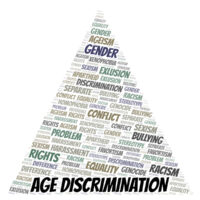Court Finds Evidence Of Age Discrimination Where Employer Was “Looking For A More Youthful Approach”

Having represented age discrimination victims for more than two decades, our Ocala, Florida age discrimination attorneys know that older workers continue to face significant obstacles in their efforts to obtain promotion. As stated in the Age Discrimination in Employment Act (ADEA), Congress enacted the ADEA in 1967 “to promote the employment of older persons based on their ability rather than age.” Despite the passage of the ADEA more than 50 years ago, “many employers or younger business executives,” as observed by the U.S. Seventh Circuit Court of Appeals in Graefenhain v. Pabst Brewing Co., 827 F.3d 13 (7th Cir. 1987), “act as if they believe there are good business reasons for discriminating against older employees.” The decision by the U.S. District Court for the Southern District of New York in Mullinix v. Mount Sinai School of Medicine, Case No. 12-cv-869 (S.D. N.Y. July 24, 2014) illuminates the Graefenhain court’s explanation as to why older employees continue to face significant obstacles in their efforts to obtain promotion.
Employee Claims Age Discrimination In Promotion
In that case, Kathleen Mullinix (Mullinix) brought an age discrimination lawsuit against her former employer, Mount Sinai School of Medicine (Mount Sinai), pursuant to the ADEA. Mullinix asserted that Mount Sinai violated the ADEA by failing to promote her to a Vice President position because of her age.
In 2009, Mount Sinai hired Mullinix, then 65, as Associate Director for Business Development at Mount Sinai’s Office of Technology and Business Development (OTBD). Mullinix signed a two-year employment contract which provided that she would be a candidate for a new position, Vice President of the OTBD. Mount Sinai considered more than 80 candidates for the Vice President position, including Mullinix.
As part of the selection process, Mount Sinai retained the services of an executive search firm. The executive search firm’s selection process was led by a man named McCooe. McCooe’s notes from an interview with another candidate he interviewed for the Vice President position stated, “Kathleen mid 60’s to Retire.” Mullinix alleged that at a meeting in March 2011, the Dean of Mount Sinai, a man named Charney, stated that he was excited about the Vice President search and that “I am looking for a more youthful approach. This office is going to be different.” Charney was the person responsible for deciding who would be selected for the Vice President position. Shortly after Charney’s remarks were made, Mount Sinai hired a 51-year-old candidate for the Vice President position.
Discriminatory Remarks Reflect Age Discrimination
Mount Sinai filed a motion with the trial court seeking dismissal of Mullinix’s discriminatory failure to promote claim.In doing so, Mount Sinai argued that Mullinix could not establish that her age played a role in the decision not to promote her to the Vice President position because the younger candidate selected for the position was more qualified than Mullinix. The trial court denied Mount Sinai’s motion for dismissal and ruled that Mullinix had presented sufficient evidence to establish that she was passed over for promotion because of her age to proceed to trial.
In denying Mount Sinai’s motion for dismissal, the trial court focused on Charney’s remark that he was “looking for a more youthful approach.” The trial court pointed out that because Charney was the decision-maker in selecting the Vice President, his remark was evidence of an age-based discriminatory intent regarding the hiring of the new Vice President. The trial court also found that McCooe’s notes, although written by a person who lacked decision-making power about another candidate for the position, were “probative” of age discrimination against Mullinix. Based on this evidence, the trial court concluded, a reasonable jury could find that Mullinix was not promoted to the Vice President position because of her age in violation of the ADEA.
Free Consultation With Ocala Age Discrimination Lawyers
Based in Ocala, Florida and representing employees throughout Central Florida, our Ocala, Florida age discrimination attorneys have been litigating age discrimination cases for more than twenty years. If you have discriminated against on the basis of age or have questions about a discriminatory failure to promote, please contact our office for a free consultation with our Ocala, Florida age discrimination lawyers. Our employee rights law firm takes age discrimination cases on a contingency fee basis. This means that there are no attorney’s fees incurred unless there is a recovery and our attorney’s fees come solely from the monetary award that you recover.
